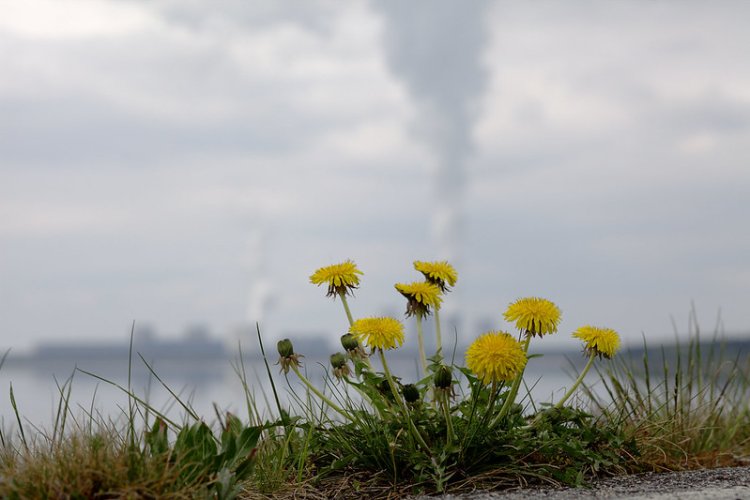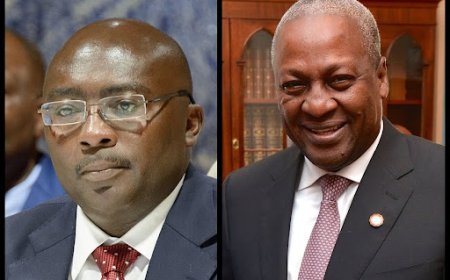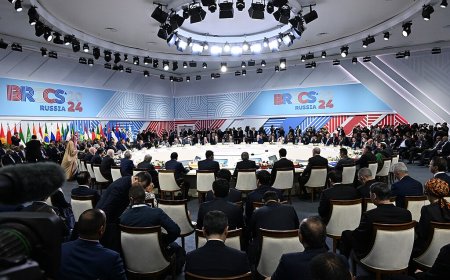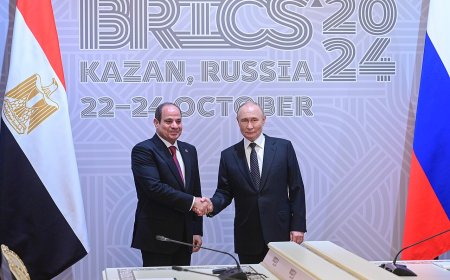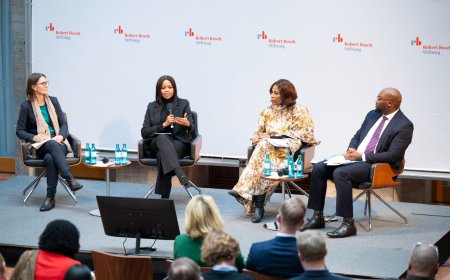This article is part of a series on the effects of the war in Ukraine on African countries. The series is edited by Chris O. Ogunmodede.
Summary
- Russia's invasion of Ukraine, the subsequent sanctions and embargoes by the European Union and subsequent retaliatory actions by Russia have resulted in European countries looking for new markets to import oil and gas.
- African oil and gas producing countries stand to potentially benefit from Europe's search for new markets, however, this will require increased investment in the oil and gas sector. Political and regulator stability in addition to good governance are essential to attract investor capital.
- Constraints and risks facing African countries should they invest in infrastructure to export oil and gas to Europe include the cyclical nature of oil and gas prices, the risk of fossil fuel lock-in stranded assets as the world transitions away from fossil fuels, and the costs needed to maintain the infrastructure.
- To achieve the goal of ending energy poverty, which is central to energy policy on the continent, there is need for greater collaboration in the implementation of the existing policies and proposals.
- Africa’s energy transition needs to be underpinned by both the development of a stable and reliable energy base and moves towards the implementation of the net-zero goals of the Paris Agreement.
Introduction
Russia’s invasion of Ukraine has shaken global energy markets. The February incursion and the sanctions subsequently imposed on Moscow by the United States and the European Union have contributed to high oil and natural gas prices, complicating the global economic recovery from the coronavirus pandemic and exacerbating high inflation levels across the globe.
Russia is a significant actor in the global energy supply chain, as a major producer and exporter of oil and natural gas. Its energy exports play a particularly important role in European energy markets and are a major component of the European Union’s energy security. Russia supplies the bulk of the EU’s natural gas consumption, with the EU importing 155 billion cubic meters of natural gas, accounting for 45% of EU natural gas imports and 40% of total consumption. Since the outbreak of war in Ukraine, the International Energy Agency, or IEA, presented a 10 Point Plan for Europe to reduce its dependence on Russian gas, and support its green ambitions. One of the ten points calls for European countries to diversify their sources of natural gas imports, a development that has taken on more significance in light of Moscow’s decision to suspend gas exports to Bulgaria and Poland.
The far-reaching consequences of Russia’s invasion of Ukraine for energy markets and geopolitics raise an important question: what implications does the Ukraine conflict have for European energy security, and what broader ramifications do those developments have for African energy policies?
With the EU’s partial embargo of Russian oil, and its plans phase imports of Russian natural gas, there is opportunity for African oil and natural gas-producing countries. Countries including Algeria, Mozambique, and Nigeria to have a greater role in the global energy landscape. Equally, the high price of oil and gas is shifting countries to increase their rollout of low-carbon technologies, presenting opportunities for African countries that produce the critical minerals (copper, cobalt and chromium to name a few) needed for these low-carbon technologies.
But African hopes to make up the shortfall in European gas imports face several hurdles. For these countries to be able to meet their domestic needs and export surplus gas products to Europe, greater investment in natural gas infrastructure is essential. Good governance and political stability are equally essential prerequisites for African countries to attract the meaningful investments needed to upgrade their energy infrastructure. Without those key reforms and investments, African countries will be unable to capitalize on the opportunity presented by Europe’s diversification of natural gas sources away from Russia. The recently signed Memorandum of Understanding between Afreximbank and the African Petroleum Producers Organization (APPO) for the creation of an African Energy Transition Bank to finance oil and gas projects on the continent will support financing and investment opportunities for Africa’s oil and gas industry.
If African gas producers can create an enabling commercial environment amid a rapidly evolving geopolitical landscape, they just might be able to reap a financial windfall from increased gas exports to Europe, which should in turn result in more revenues to fill government coffers, create jobs locally, reduce poverty rates and support domestic development goals.
Challenges
The increase in oil prices in global markets due to the war in Ukraine has contributed to a global increase in the price of refined oil products like petroleum. According to an African Development Bank and African Union report titled Oil and Gas in Africa, most African countries are net importers of oil. The spike in global oil prices is contributing to inflation in a number of African countries, with Fitch Solutions projecting an average inflation rate of 22.1 percent for Africa in 2022.
To boost export revenue, increase economic productivity and support long-term social development, policymakers in African oil and gas producing countries in Africa may propose ramping up domestic production and refinement of oil and gas products. However, a few challenges are likely to emerge:
- The process from exploration to production can take several years for countries seeking to explore newly discovered gas reserves, leaving gas producing countries vulnerable to changes in global demand.
- Secondly, global energy prices are cyclical and unlikely to remain at current levels, or at least at prices high enough that would enable countries to recoup the investments they made in their domestic gas industry, let alone reinvest the windfall into maintaining its infrastructure.
- Third, oil and gas pipeline infrastructure require significant investment and takes time to build, develop and operate. Algeria is currently struggling to meet the increased demand for gas from Europe, due to a longstanding lack of investment in its gas infrastructure.
- Lastly, the regular maintenance of oil and gas pipelines is essential for their smooth and functional operations. A lack of maintenance can result in social and environmental issues including the destruction of vegetation, harm to local wildlife, and increase water and air pollution levels.
Moreover, the potential for fossil fuel lock-in, where African countries double down on investment and development of fossil fuels even if they lose their economic viability, developed countries transition away from them, a risk that cannot be ignored. This is to say nothing of the stranding of fossil fuel assets as well as the consequences of the “Dutch disease”, in which the rapid development of one sector of a country’s economy, usually natural resources, brings about a decline in others. It would be prudent for African policymakers to consider the risks that the energy transition will present to investment in these long-term projects and plan accordingly.
Towards a Just Energy Transition for Africa
Energy poverty, defined as the lack of access to adequate, reliable, affordable, safe, and sustainable modern energy sources, remains a major challenge for Africa. Ending energy poverty is important for policymakers on the continent because access to stable and modern electricity is critical for development and the alleviation of poverty, as noted by the African Development Bank in its Energy Sector Policy and the 1996 SADC Protocol on Energy. African countries must secure access to cheap and reliable energy resources in order to industrialize their economies and meet the demands created by rapid urbanization and population growth the continent is projected to experience in the coming decades. Although much progress has been made, greater collaboration between African countries is needed to ensure effective implementation of these policies and proposals.
Meanwhile, European countries continue to use fossil fuels as they transition toward renewable energy, even while advocating for countries in the developing world to rapidly reduce their carbon emissions. This development has resulted in accusations of hypocrisy and double standards.
While renewable energy use is gaining a foothold in many African countries, it largely occurs at the individual level, as a means of replacing and supplementing the inefficiencies of the centralized national grid that typically supplies energy across the country. The expectations for African countries to rapidly “leap-frog” to renewable and low carbon technologies must be reconsidered in light of the steep costs required for these innovations to scale nationally.
A potential collaborations between European and African countries toward a just energy transition will need to prioritize securing energy access through a mix of different sources available on the continent, as well as with the technical support as documented in the 2015 Paris Climate Agreement. In this scenario, the avoidance of fossil fuel lock-in and ensuring energy security for African communities are critical to achieving a just energy transition. In essence, considerations around the energy transition for Africa must be underpinned by the development of a stable industrial energy base, while working towards the net-zero goal of the Paris Agreement.
Recommendations
- African policy and decision makers must be aware of the impact that the global energy transition will have on these new investments in oil and gas to avoid stranded assets and fossil fuel lock-in.
- European countries must partner with gas-exporting African countries to avoid fossil fuel lock-in, and pursue policies such as a carbon takeback obligation – agreements placing the responsibility of the safe storage of CO2 on the producers and importers of fossil fuels as African countries develop the infrastructure needed to increase gas exports to Europe;
- Europe must develop policies to support decarbonization in African countries, in a manner that considers their existing debt levels and the high borrowing costs which reduces their ability to make investments to develop the necessary renewable energy infrastructure. Offering debt relief as an incentive for the protection of natural ecosystems that act as carbon sinks, technology transfer to support the development of low carbon energy technologies and transmission;
- African oil and gas producers must also use the development of new infrastructure intended to support energy exports in addition to meeting domestic and industrial energy needs. Support from initiatives like the African Energy Transition Bank is critical to ensure this;
- The governments of African countries endowed with the critical minerals needed for the development of low carbon technologies must create an enabling environment for participation in the renewables value chain, beyond the extraction of these minerals and metals;
- African countries must pursue good governance and transparency in the use of the windfall reaped from gas export deals with Europe and decarbonization projects to promote development.
The Russia-Ukraine war has undoubtedly provided a jolt to European energy security, as the geopolitical ramifications of the EU’s heavy dependence on oil and gas imports from Russia is now causing the bloc to seek alternative sources of energy. This development has had a knock-on effect for other countries around the world, especially African countries. However, the changing energy landscape also presents an opportunity for African countries to capitalize on this gap, one that can only be realized with the political will of the continent’s political leaders.
This article has been updated.
About the Author
Vincent Obisie-Orlu
Vincent is a Natural Resource Governance Researcher. His research focuses on Environmental, Social and Governance (ESG) risks, the natural resource governance of critical minerals, oil and gas, energy and the energy transition, and advancing Africa's sustainable development.
